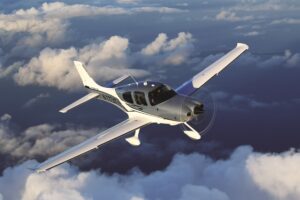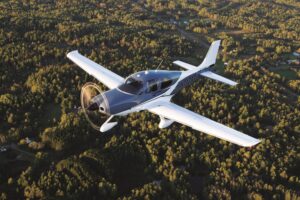Flight School or College, Which is the Better Choice?
Historically, in the United States especially, the value of a college degree was undeniable. A degree conferred on its owner a desirable social status. It opened the door to executive positions that paid well, offered great benefits, and represented rock solid employment for an individual’s entire working life.
In short, achieving the goal of earning a college degree was virtually a golden ticket to living the American Dream.
In recent years with costs escalating dramatically while the earning power associated with many degrees has plunged disturbingly low, the cost/benefit analysis of investing four years and an ever-increasing dollar amount to pursue a college degree has become less and less attractive.
At the same time the commercial aviation has boomed, creating opportunities for professional pilots like never before. Training fleets have become modernized with glass cockpits featuring digital instrumentation, more fuel-efficient engines that run on unleaded fuels, with more reliable automation than their counterparts from years ago.
Add to that the reality that flight training is by nature a one-on-one endeavor that matches one flight instructor to each student (what the FAA now refers to as a “learner”) for each new certificate or rating sought. The value of flight training as a viable alternative to college becomes ever more clear.
For many of us the question becomes, which is the better choice? Should I pursue a college degree in the hopes of finding a well-paying job after graduation or would it be more productive to throw myself into flight training with the goal of becoming a professional pilot?
Let’s compare and contrast the two options.
College typically requires a 4-year investment, at a cost of more than $100,000 for most degree programs. This, to attend classes virtually, or in a classroom with hundreds of students who are being instructed at least occasionally by a teaching assistant rather than the professor listed for the class. All this, to acquire a degree that may be of decreasing value when the holder enters the job market.
Flight school typically requires a time commitment of 1 year or less. Priced at $80,000 – $100,000 to earn a series of certificates and ratings that culminate with a commercial pilot certificate. The successful completion of flight school qualifies the holder to fly professionally anywhere in the world. Ground school is typically conducted in small classes with a desirable student/teacher ratio. Flight instruction is by nature a one-on-one experience. A process designed to build competence, confidence, and a well-established hands-on skill set that translates directly to a career position with exceptional earning potential.
Today, the professional pilot carries as much positive social status as the executive with a college degree did in years past. While entry level earnings can be relatively low, as they are in all entry level jobs, the pay-scale escalates quickly to a mid-six figure level that puts airline pilots solidly into the upper class in any socio-economic setting.
Adding to the value of the flight school experience as opposed to the devaluation of the college degree is the fact that few if any professional pilot positions require a college degree any longer.
Should I go to college or flight school? The answer to that question is getting easier to see with clarity every year, with the weight shifting ever more into flight school’s favor.



